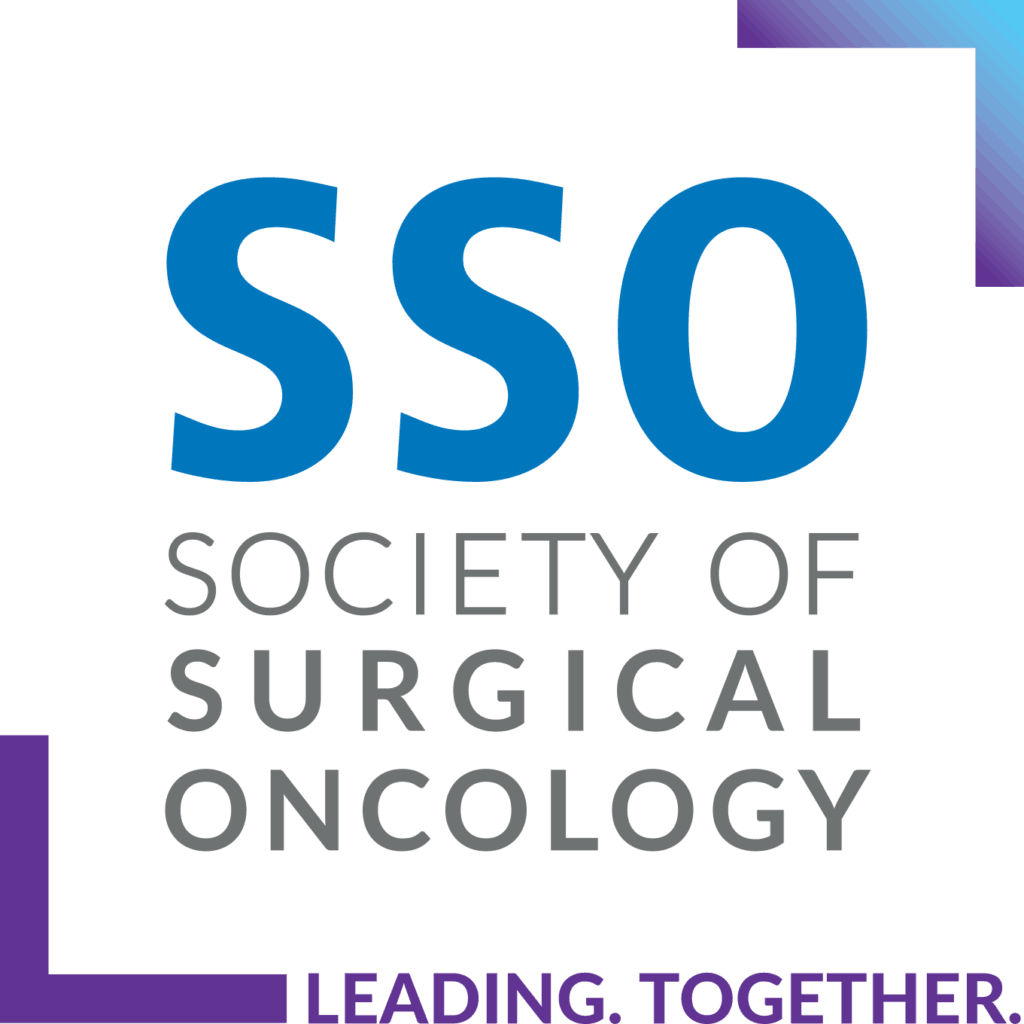SSO 2021 Clinical Investigator Award Recipient – Christina L. Roland, MD, MS
The SSO Clinical Investigator Award was introduced in 2007 to recognize early-to-mid-career investigators with a record of peer-reviewed funding, and to support further clinical cancer research. SSO’s research grant program is made possible through generous donations to the SSO Research and Education Fund. Since its inception, the award has granted a total of $3.8 million to 38 recipients. The title of the 2021 award-winning proposal, presented by Christina L. Roland, MD, MS, is “Characterization of Intratumoral B cells and Microbiome to Enhance Responses to Sarcoma Immune Checkpoint Blockade.”
What is the focus of your research and how did it begin?
I always had a basic love for science but, during my residency and fellowship, I realized that translational surgical oncology was the place for me. My research and clinical practice focus on the treatment of soft tissue sarcoma. Over the last decade immune check-point blockade, or immunotherapy, has become an integral part of multi-modality therapy in the treatment of solid tumor cancers. There is a wealth of data on this for certain cancers like lung cancer or melanoma, but soft tissue sarcoma is uncommon. Although seventy subtypes of the disease have been identified, only 13,000 patients are diagnosed each year.
Previous research presented at ASCO demonstrated activity in the use of immunotherapy in two subtypes of sarcoma, dedifferentiated liposarcoma (DDLPS), and undifferentiated pleomorphic sarcoma (UPS), which are among the most common types of sarcomas. Based on that study, my team and I developed a clinical trial to investigate the efficacy of neoadjuvant immunotherapy in these two subtypes. Preliminary results indicated that 90 percent of patients with UPS had significant pathologic responses to this treatment, but only 20 percent of the DDLPS cohort had a response. We included significant translational research on the back end of our study. Based on previous data we extracted from RNA from metastatic sarcomas, we were able to categorize patient sarcoma immune classes, one of which—B cells—responded best to immunotherapy in a metastatic setting. Therefore, we hypothesized that different B cell and microbiome signatures exist within sarcoma patients and these signatures determine a patient’s response to checkpoint blockade therapy.
What else might have prompted you to continue down this line of research?
As I mentioned, sarcoma is a fairly rare disease, yet 30-40% of patients will have metastatic disease at the time of diagnosis and most of them will die within five years. As a surgeon I can master my surgical techniques, but that does not change the long-term outcome given the nature of this disease. Improvements in systemic therapy are going to make a bigger difference. Knowing the challenges that my patients face, I wanted to figure out other ways to reduce the likelihood of metastatic disease. So, in part, the goal of this study is to treat the disease before it spreads. Research provides the means through which we discover most of the clinical advances with the potential to extend life expectancy. Helping patients before, during, and after surgery has become my passion.
When do you anticipate the results of this research will be complete, and what would follow?
We are in the process of completing the first clinical paper detailing outcomes and things we learned at the beginning of the trial. We expect to have more information in the next year or two. Ours was one of the first trials to incorporate radiation and immunotherapy in treating sarcoma. When we combined that with radiation, 90% of patients showed improvement, a lot higher than in patients with metastatic disease. We are looking at a number of possible explanations; for example, patients receiving different treatment regimens come to us at different stages of disease. We were surprised to find that immunotherapy works better on patients with less disease. We look forward to comparing the data we generated in these patients to those whose disease metastasized. We believe that, by understanding the differences in the immune cells in these tumors at baseline, we may be able to explain the differences in response rate.
Conducting clinical trials in patients with rare diseases is challenging because there are fewer diagnosed patients we can study. Clinical trials in a neoadjuvant setting are perfect for surgeons to lead because we steer the ship in the pre-surgical stage of treatment. Studies that look at therapies prior to surgery, combined with related translational science, can provide high quality data despite the small number of patients because you are studying a homogeneous cohort. “I am very grateful for the opportunity to move this research forward thanks to funding from SSO,” Dr. Roland explained. “This is an area of research that surgeons are primed to do, and do well. These studies, especially when conducted by surgical oncologists, will be high yield for many different patients, not just those with sarcoma.”
SSO’s research grant program is supported by the SSO Research and Education Fund, a restricted fu d of the SSO Foundation. The availability of research grant funding is dependent on the financial support of SSO members and donors. 100% of your donation supports this program. Please donate generously to ensure that SSO members have an ongoing source of funds for research projects.





